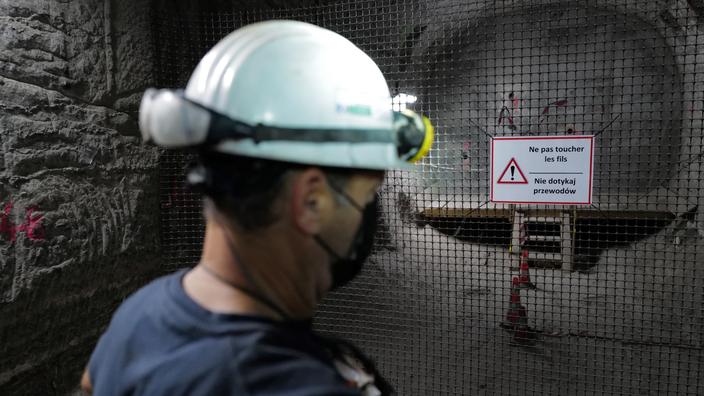New episode in the Stocamine case: while the government had ruled in January in favor of the final storage of 42,000 tonnes of toxic waste in this former Haut-Rhin mine, the justice system put a stop to work on Friday. point of being engaged.
The Nancy Administrative Court of Appeal annulled the prefectural decree which authorized the burial "
for an unlimited period
" of non-radioactive hazardous waste (asbestos, arsenic, mercury, etc.) stored in this mine, under the water table of 'Alsace.
Read also Stocamine: in Alsace, the "unlimited" landfill of toxic waste questioned
The Court justifies its decision by the fact that the company des Mines de potasse d'Alsace (MDPA), which operates Stocamine, does not justify "
financial capacity
enabling it
to carry out the unlimited exploitation
" of the site, or to assume “
all the requirements
” represented by this mission. She recalls that the company MDPA, of which the State is the sole shareholder, is financed by subsidies "
granted annually
" by the Ministry of Ecological Transition. "
Without guarantee of their maintenance
", these subsidies do not guarantee "
the firm commitment of the State to assume the costs of the project
" over an unlimited period, underlines the court.
Immediate consequence of this decision: the first concrete pourings, planned for the beginning of November to form impermeable plugs preventing access to waste, will ultimately not take place.
But the debate remains lively around the question of the possible withdrawal of waste, demanded by local actors and rejected by the Ministry of Ecological Transition.
"
Lost time
"
The European Collectivity of Alsace (CEA) and the Alsace Nature association, which had brought the case to court alongside the Grand Est region, welcomed the decision rendered. "
This is excellent news, I was really worried about the risk of permanent landfill for future generations
," Frédéric Bierry, President LR of the CEA, told AFP. “
This reshuffles the cards and allows us to get back around a table to rework on the possibilities of destocking. The state must review its copy with us. Total destocking may not be possible, but partial yes,
”he added, renewing his proposal that the ECA be the prime contractor in this case.
"
It's a satisfaction, of course, but there is also regret for all the time lost to reach a conclusion that we could have arrived at much earlier,
" reacted Yann Flory.
Spokesman for the Destocamine collective, which has been fighting against this landfill site since 1989, and of which Alsace Nature is a part, he calls for "
joining local forces to convince the State to continue destocking
".
The Ministry of Ecological Transition regretted that this decision "
postpones again an intervention which was finally decided after 20 years of procrastination
", and in a context where "
the collapse of the galleries of the site will make any intervention impossible after the end of the decade
”.
Many twists and turns
The operation of the Stocamine site was authorized in 1997 for 30 years by a first prefectural decree, in order to convert this end-of-life potash mine into an underground industrial landfill, and to store 320,000 tonnes of hazardous waste there, at 535 meters deep. But in 2002, a fire in a storage space abruptly interrupted operations, when more than 44,000 tons had already been lowered.
Since then, studies have multiplied to highlight the dangers involved in removing toxic waste, but also the risks that their containment would pose to the environment, and the possible pollution of the water table in Alsace.
Under François Hollande's five-year term, the state had decided to withdraw 93% of mercury waste, and to contain the rest of the waste.
Then a prefectural decree was issued in March 2017 to authorize the “
unlimited
”
containment
of the remaining waste.
Read also Nuclear waste storage: the scenario of chaos, the key argument in favor of Cigeo
Faced with the discontent of local communities and environmental defense associations, the State then again considered exhuding other waste.
But Minister Barbara Pompili had decided on the definitive containment of the waste, to the chagrin of local actors.
The government now has two months to lodge a possible appeal with the Council of State.

